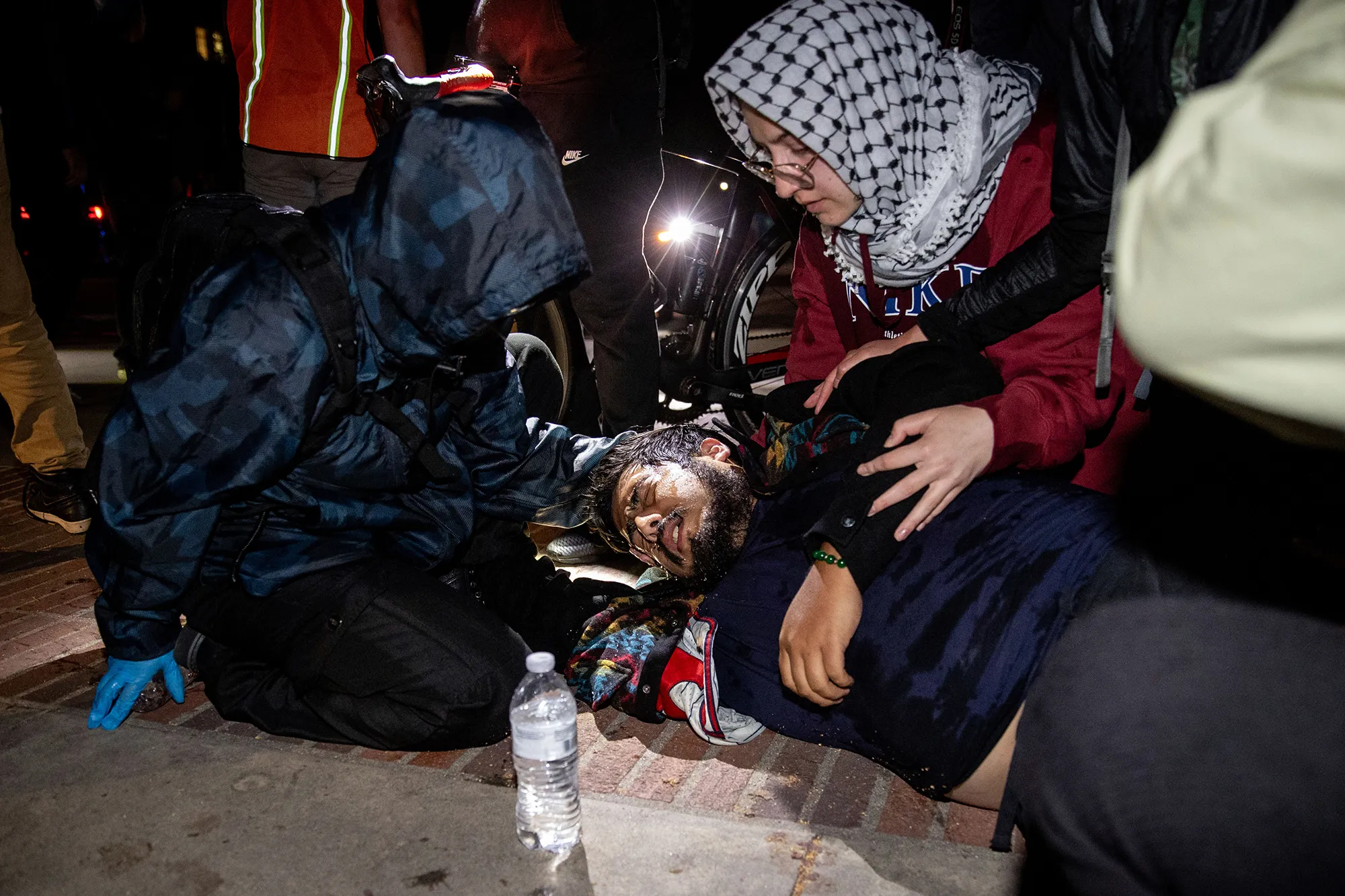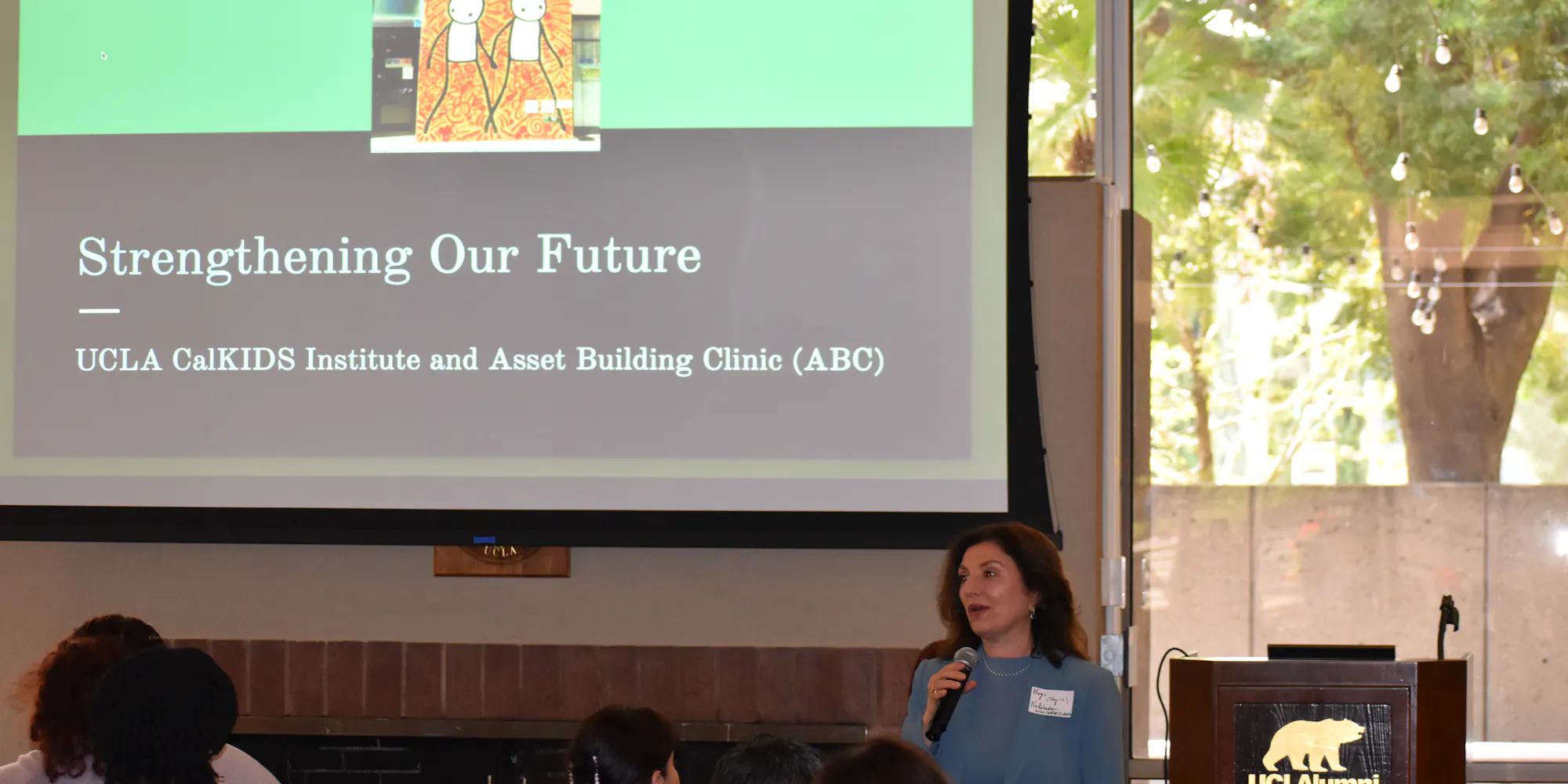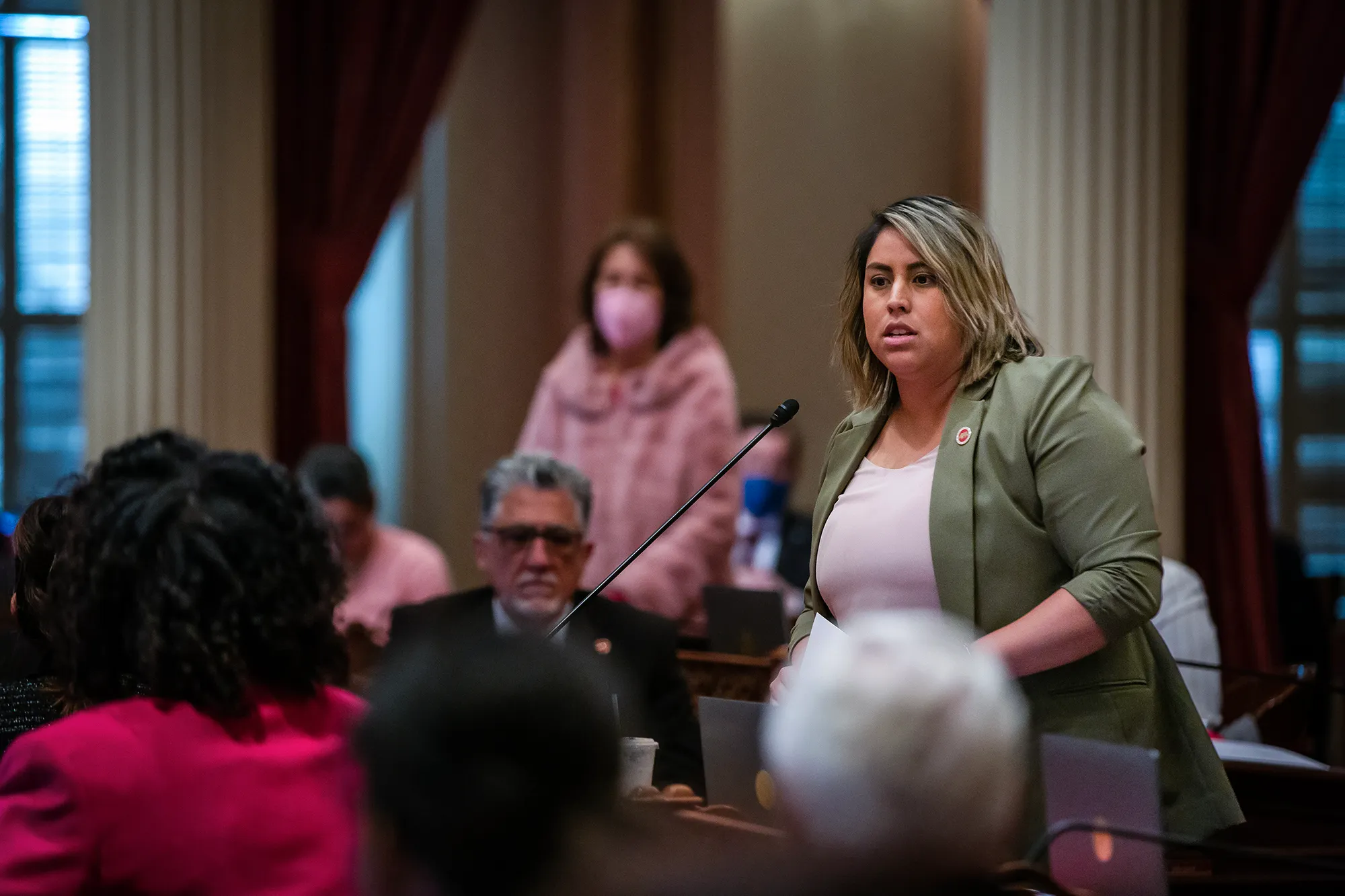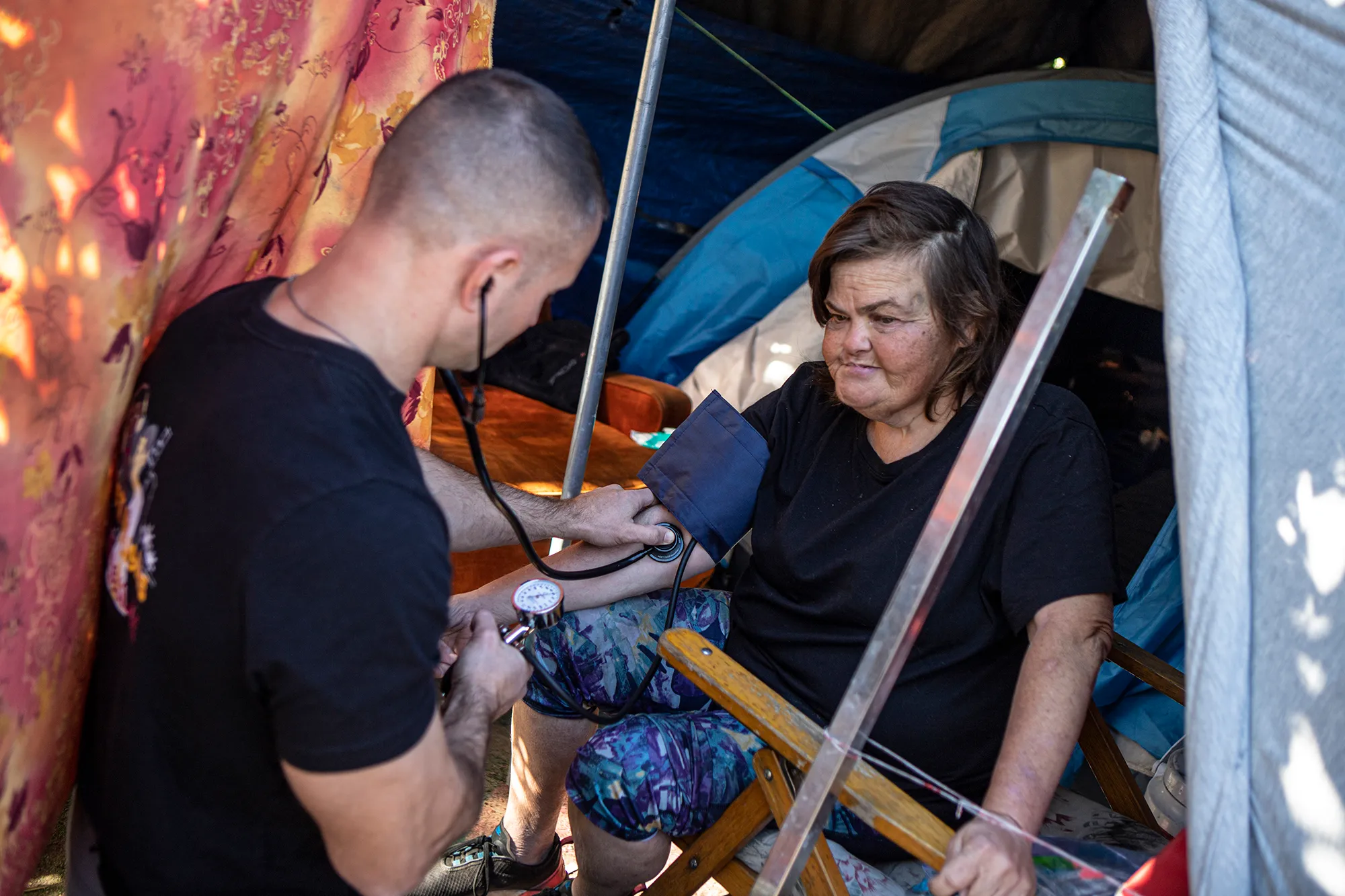So How Did We Get a Night of Violence at UCLA?
The University of California’s campus safety plan was designed to calm protests by limiting law enforcement. Yet as tensions grew to violence against a UCLA student encampment erected in protest over the war in Gaza, many are criticizing law enforcement’s lack of intervention.
By ATMIKA IYER
CALMATTERS
As counterprotesters tore at barricades, threw fireworks, and beat and pepper sprayed pro-Palestinian protesters at UCLA overnight Tuesday, no law enforcement officers took action to stop the violence or made any arrests. In stark contrast, by tonight, UC Police declared that anyone who remains in the “unlawful” encampment would be arrested.
Last Thursday morning, Los Angeles police dismantled many of the tents, pushing out most of the protesters and arresting more than 130 people, capping two days of upheaval that began when UCLA declared the camp “unlawful” and continued when a mob attacked the camp Tuesday night, with police taking hours to stop the violence.
The reason for such a mixed response from law enforcement: haphazard adherence to UC President Michael Drake’s 2021 UC Campus Safety Plan.
Encampments at a growing number of universities across the state and nation are sparking battles between students’ free speech and campus policies against trespassing and obstructing operations.
For the University of California system, the encampments at five campuses are a test of newly implemented campus policing reforms meant to address systemic racism post-2020.
The plan was designed to deter potential violence — and reduce a police role in campus protests. But now, people are questioning why law enforcement did not break up any of the physical assaults or otherwise intervene as violence escalated at the Los Angeles campus.
The UC Campus Safety Plan is being put to the test amid heightened tensions between pro-Palestinian groups calling for the UC to financially divest from companies with ties to Israel, and pro-Israel groups counterprotesting and calling the actions of those in the encampments antisemitic.
The UC Office of the President has released a statement rejecting demands for divestment.
“The University of California has consistently opposed calls for boycotts against and divestment from Israel,” the statement said. “While the University affirms the right of our community members to express diverse viewpoints, a boycott of this sort impinges on the academic freedom of our students and faculty and the unfettered exchange of ideas on our campuses.”
President Drake’s office refused multiple requests from CalMatters to answer questions about UC’s response to campus encampment protests.
According to a statement from Drake, there were at least 15 injuries and one hospitalization on the Tuesday night of violence.
The UC president has ordered a review of UCLA’s “mutual aid response” and UCLA Chancellor Gene Block said he plans to “dismantle (the encampment) at the appropriate time.”
UC lecturers were quick to call for Block’s resignation, citing the mismanagement of police and security response to the overnight violence.
On the night of violence, university-hired, unarmed security guards and campus public safety aides watched counterprotesters physically attack those residing in the pro-Palestinian encampment.
Late Tuesday, the university delivered a formal letter to UCLA’s Divest Coalition declaring the encampment an unlawful assembly in violation of campus policy. Chancellor Block put out a statement saying the university removed demonstrators’ barricades blocking entrances to specific buildings and warned that students could face suspension or expulsion.
By about 1:30 a.m., Los Angeles Police and the California Highway Patrol arrived, after the chancellor called them to assist security guards and UC police.
The officers did not break up the violence. Instead, they advanced a line every few minutes to push the counterprotesters out of the area. Some of the counterprotesters who remained, however, continued their assaults.
At about 4 a.m., a small group of student journalists for the Daily Bruin, including Christopher Buchanan, a student fellow for the CalMatters College Journalism Network, were confronted by a group of counterprotesters who began berating them.
They targeted the staff’s news editor, calling her names, and blocked the journalists’ route to the Daily Bruin office. One shined a strobe light into Buchanan’s face while others attacked him as he fell to the ground.
“After I was struck and debilitated, I was surrounded by four to seven counterprotesters who proceeded to punch and kick my head and torso for thirty seconds to a minute,” Buchanan said. “I didn’t sustain any internal injuries, but I was badly bruised on the body and face.”
Buchanan said this all happened within earshot of CHP officials, who did nothing to intervene.
Students and government officials are decrying UCLA’s response. UCLA refused to provide interviews or answer questions about their policing response.
California Assemblymember Rick Chavez Zbur, a Democrat whose district includes UCLA, issued a statement condemning the violence against pro-Palestinian protesters.
“The horrific acts of violence against UCLA students and demonstrators that occurred on campus last night are abhorrent and have no place in Los Angeles or in our democracy,” Zbur said.
“No matter how strongly one may disagree with or be offended by the anti-Israel demonstrators’ messages, tactics, or goals, violence is never acceptable and those responsible must be held accountable.”
In the past few days, UC Irvine and UCLA have declared their campus encampment protests illegal and in violation of the state education code against non-UC use of university property. Many pro-Palestinian student advocates see this position as an attempt to disrupt their advocacy.
In responding to the encampments, the UC, unlike some universities, has avoided an aggressive law enforcement response. Police have not arrested anyone or used tear gas. The UC Campus Safety plan, however, has not been uniformly followed at each campus.
Campus police chiefs at UC Berkeley, UCLA and UC Irvine refused several requests for comment from CalMatters.
UC Irvine spokesperson Tom Vasich described the decision to involve five law enforcement departments as “a standard response” for situations where the campus needs support while simultaneously describing the protest as a “very peaceful environment.” He attributed the police response to potential trespassing violations from people not affiliated with the university.
“This isn’t a free speech issue,” Vasich said. “This is a trespassing issue.”
Atmika Iyer is a fourth-year history major at UC Santa Barbara. She served as the 2022-23 editor-in-chief of UCSB’s student-run, independent newspaper, the Daily Nexus.
Christopher Buchanan, Li Khan and Hugo Rios contributed to this story. All authors are fellows with the College Journalism Network, a collaboration between CalMatters and student journalists from across California. CalMatters higher education coverage is supported by a grant from the College Futures Foundation.
CalMatters.org is a nonprofit, nonpartisan media venture explaining California policies and politics. Published with permission of CalMatters.
—













